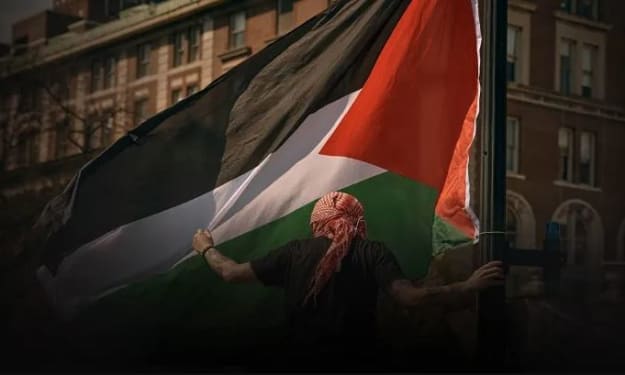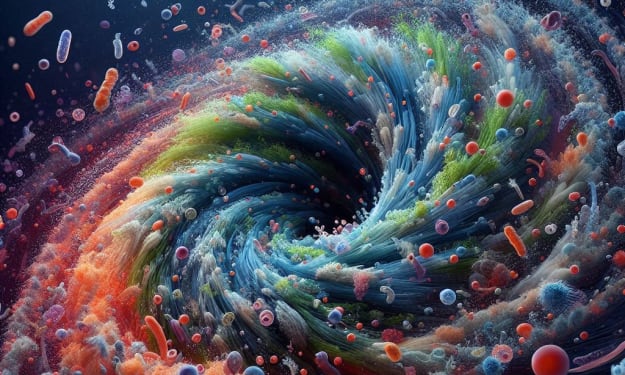Eid ul Adha: The Festival of Sacrifice and the Ritual of Qurbani
A Festival of Sacrifice for the love of ALLAH

Eid ul Adha, also known as the Festival of Sacrifice, is one of the most significant Islamic holidays celebrated by Muslims around the world. This festival honors the willingness of Prophet Ibrahim (Abraham) to sacrifice his son Ismail (Ishmael) as an act of obedience to Allah. However, before he could sacrifice his son, Allah provided a ram to sacrifice instead. This story, which is also recognized in Jewish and Christian traditions, underscores the themes of devotion, obedience, and faith.
The Significance of Eid ul Adha
Eid ul Adha falls on the 10th day of Dhu al-Hijjah, the last month of the Islamic lunar calendar. The celebration coincides with the completion of Hajj, the annual pilgrimage to Mecca, which is a mandatory act of worship for all Muslims who are physically and financially able to undertake it at least once in their lifetime. Eid ul Adha is a time for Muslims to commemorate the spirit of sacrifice, renew their faith, and engage in communal worship and charity.
The Ritual of Qurbani
One of the central rituals of Eid ul Adha is the practice of Qurbani, or the sacrificial offering. Qurbani is performed in remembrance of Prophet Ibrahim's unwavering devotion and trust in Allah. The ritual involves the sacrifice of a livestock animal, such as a goat, sheep, cow, or camel. This act is a demonstration of a Muslim's willingness to sacrifice something valuable for the sake of Allah.
Preparing for Qurbani
The preparation for Qurbani begins with selecting a healthy animal that meets specific criteria outlined in Islamic law. The animal should be of a certain age and free from any defects or illnesses. The selection process is done with great care, as the quality of the sacrifice reflects the devotion and respect for the ritual.
Performing the Sacrifice
The actual act of sacrifice is carried out after the Eid prayer on the first day of Eid ul Adha and can continue until the sunset of the third day. The person performing the Qurbani should be of sound mind and must utter the name of Allah at the time of the sacrifice. The traditional phrase spoken during the sacrifice is:
Bismillahi Allahu Akbar
("In the name of Allah, Allah is the Greatest").
The sacrificial animal is laid on its side facing the Qibla (the direction of Mecca), and the sacrifice is carried out swiftly and humanely, ensuring the least amount of suffering.
Distribution of the Meat
Once the sacrifice is completed, the meat of the sacrificed animal is divided into three equal parts:
One-third for the family: This portion is kept for the family who performed the Qurbani, allowing them to enjoy and benefit from the sacrifice.
One-third for relatives and friends: This part is distributed among relatives, friends, and neighbors, fostering a sense of community and shared joy.
One-third for the needy: The final portion is given to those in need, ensuring that the blessings of Eid ul Adha extend to the less fortunate and that they too can partake in the festive meals.
This division underscores the principles of charity, generosity, and community welfare, which are fundamental aspects of the Islamic faith.
The Qurbani Dua
The Qurbani ki Dua is a specific supplication recited before and during the act of sacrifice. This dua is a vital part of the Qurbani ritual, as it signifies the devotion and intention behind the sacrifice. Here is the Qurbani Dua in Arabic along with its English translation:
اللهم هذا منك ولك
"Bismillahi Allahu Akbar, Allahumma hadha minka walaka"
("In the name of Allah, Allah is the Greatest. O Allah, this is from You and for You.")
Reciting this dua emphasizes the believer's acknowledgment that the act of sacrifice is performed solely for the sake of Allah and that the blessings and rewards come from Him alone.
Spiritual and Social Dimensions of Qurbani
The practice of Qurbani carries profound spiritual and social significance. Spiritually, it is a means for Muslims to express their obedience to Allah, demonstrating their willingness to part with something valuable. It is a reminder of the importance of selflessness, submission, and faith.
Socially, Qurbani fosters a sense of community and compassion. By distributing the meat to family, friends, and the less fortunate, Muslims strengthen their bonds with others and ensure that the joy of Eid is shared widely. It serves as a reminder of the importance of social responsibility and the need to support those in need.
Global Observance of Eid ul Adha
Eid ul Adha is observed with great enthusiasm and reverence across the globe. In many countries, the day begins with a special prayer at the mosque, followed by the sacrificial ritual. Communities come together to celebrate, share meals, and engage in acts of charity.
In places where livestock farming is prevalent, such as in parts of Africa, Asia, and the Middle East, the Qurbani ritual is performed on a grand scale. In urban areas, where space and resources may be limited, many Muslims choose to donate money to charitable organizations that carry out the Qurbani on their behalf, ensuring that the meat is distributed to those in need.
Challenges and Contemporary Practices
While the essence of Qurbani remains unchanged, contemporary practices have evolved to address various challenges. For instance, in some regions, environmental and animal rights concerns have led to stricter regulations around the humane treatment of animals and the hygiene of slaughtering practices.
Additionally, global economic disparities have highlighted the importance of ensuring that the benefits of Qurbani reach the most vulnerable communities. Many international humanitarian organizations facilitate Qurbani donations, enabling Muslims to fulfill their religious obligations while contributing to global efforts to alleviate hunger and poverty.
Conclusion
Eid ul Adha and the ritual of Qurbani embody the spirit of sacrifice, devotion, and compassion that are central to the Islamic faith. Through the act of Qurbani, Muslims around the world demonstrate their obedience to Allah, commemorate the legacy of Prophet Ibrahim, and reinforce the values of charity and community welfare.
As Muslims celebrate Eid ul Adha, they are reminded of the importance of faith, the blessings of sharing, and the significance of supporting those in need. This festival, with its rich traditions and profound messages, continues to inspire and unite the global Muslim community in a collective expression of piety, generosity, and solidarity.
About the Creator
Enjoyed the story? Support the Creator.
Subscribe for free to receive all their stories in your feed. You could also pledge your support or give them a one-off tip, letting them know you appreciate their work.






Comments
There are no comments for this story
Be the first to respond and start the conversation.